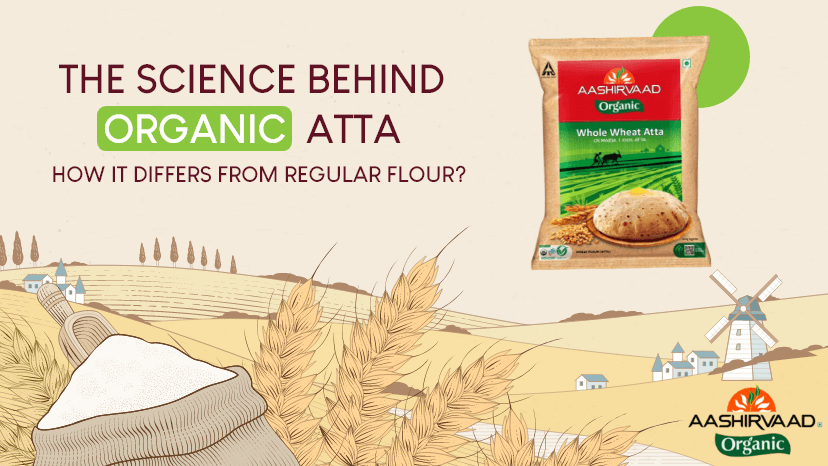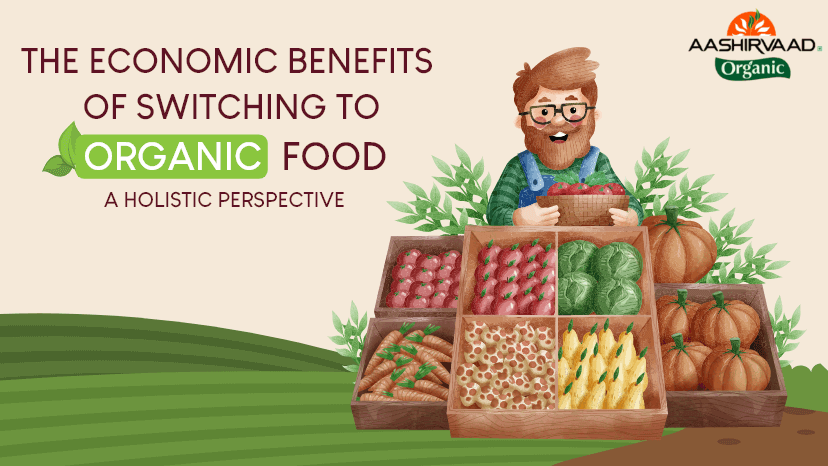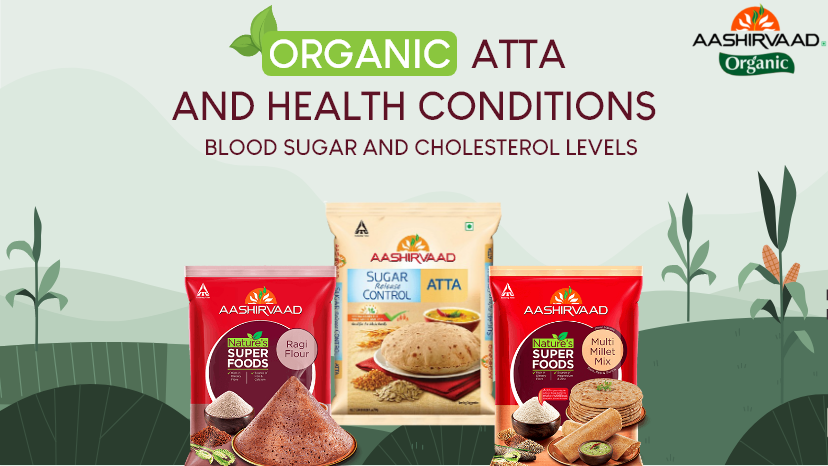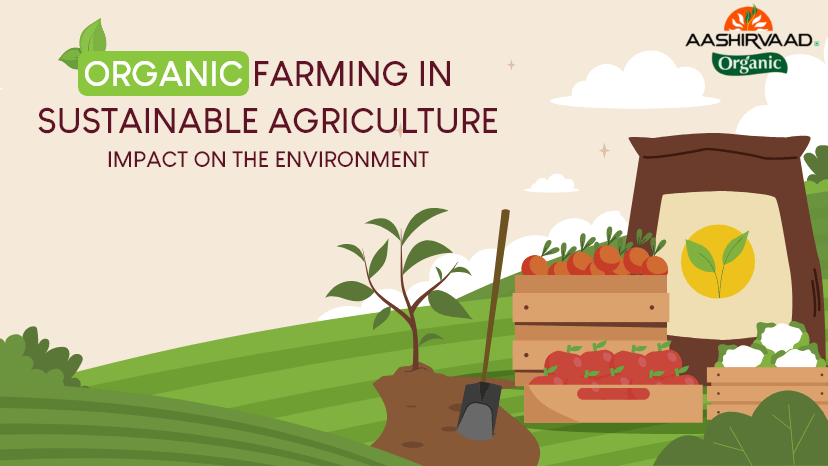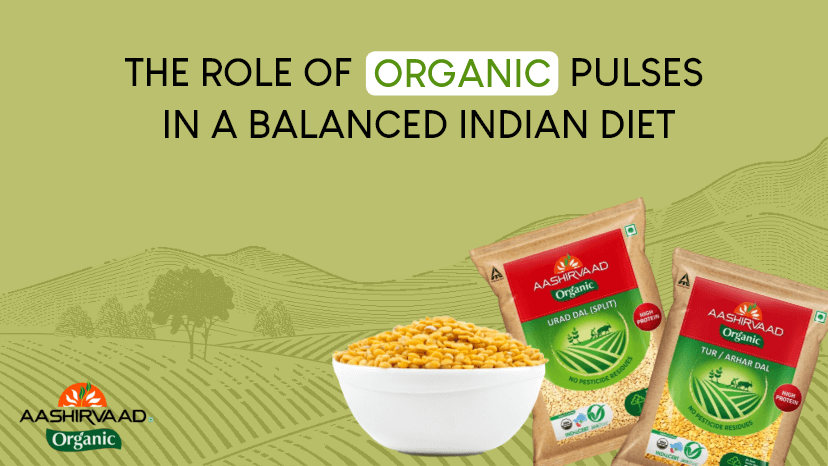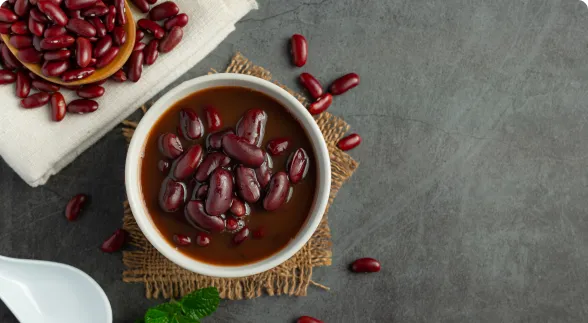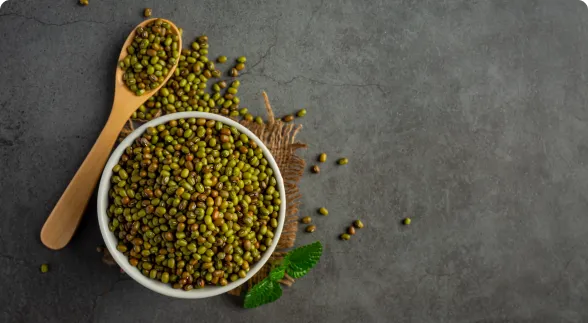In our grandmothers’ kitchens, a heartwarming tradition unfolded every day. With love, they ground grains at home, creating fresh atta, connecting us to our heritage and making something delicious for the family.
Imagine stepping into that cozy kitchen with comforting smells, where skilled mothers used a hand-operated mill for wheat, jowar, chickpeas, ragi, and others.
This daily ritual was more than just making atta; it was a beautiful tradition passed down through generations, filling the kitchen with love and the promise of wholesome goodness.
In the middle of trying to eat healthy, there’s a simple solution – organic atta. Organic Atta brings a bundle of fibre, essential vitamins, minerals, and antioxidants that keep us in good shape.
Made from simple organic grains without fancy processing, let’s find out why organic atta is a good friend to our health and a delicious addition to every Indian kitchen.
1. Why organic?
Choosing organic food means picking a natural way of growing things without using chemicals like pesticides, insecticides, and fertilizers [1]. Going for organic food has a bunch of benefits compared to regular options:
1. Enhanced Nutritional Value: Organic food has more vitamins, minerals, and enzymes that help your body fight off infections and stay healthy. It contains iron, magnesium, B-vitamins, calcium, dietary fibre and antioxidants like phenolic acids, flavonoids, coumarins and tannins.
2. Reduced Toxin Intake: Conventional farming practices involve the use of artificial pesticides, insecticides, and fertilizers, leading to increased toxin consumption [2].
Choosing Aashirvaad’s Sach Much Organic products, supported by a comprehensive testing process such as the 217 Tests for Pesticide-Free Produce, significantly reduces chemical exposure.
4. Superior Taste: Organic atta is known for its delicious taste and unique qualities. It has a firmer texture and more intense flavours, which you can especially notice when compared to non-organic atta. It adds a delightful touch to your meals, making them more enjoyable and flavourful [3].
5. Premium Quality: Every organic food follows worldwide rules to get certified for sale. This promise ensures that the best quality products reach you, a standard that brands always maintain.
We uphold uncompromising standards of cleanliness and safety in every Aashirvaad Organic pack delivered to you.
6. Environmental Friendliness: Regular farming can harm the soil and water by adding pollution. But, organic farming is different. It helps keep the soil healthy and fertile without causing pollution.
It also protects the nutrients in the groundwater. So, choosing organic farming is better for the environment.
2. What Sets Organic Flour Apart from “Regular” Flour?
When we talk about “regular” flour, they usually mean all-purpose or plain flour. Some plain flours are called “unbleached,” but many go through a bleaching process that removes their germ and bran content.
Bleached flour is artificially aged using things like benzoyl peroxide and chlorine gas to speed up the process, making it whiter and finer-grained with a softer feel. However, this convenience makes it less healthy [4].
In contrast, organic flour retains its bran and germ content, ages naturally, and is free from artificial additives. This makes organic flour a notably healthier choice compared to “regular” or “bleached” flour.
3. Does Organic Atta Offer a Distinct Taste Compared to Other Varieties?
Organic atta might taste different from other kinds. Many think it has a richer and stronger flavour. This is because organic farming uses natural and traditional methods, avoiding synthetic chemicals and focusing on soil health.
Also, organic atta may keep more of the grains’ natural flavours because it’s processed less. But, taste varies from person to person, and some may not notice a big difference [5].
You can elevate your cooking experience with Aashirvaad Whole Wheat Atta, where the dough’s unique water absorption results in softer rotis that stay fluffy for longer. Serve these delightful rotis to your family, providing a source of sustained energy throughout their day!
4. How Organic atta is made?
Making our organic atta is a careful process done with precision and care. Following the age-old tradition of the chakki, Aashirvaad Organic provides you with wholesome goodness. It all starts at the source, where we get whole wheat grains straight from farmers. This way, we make sure there’s a natural and smooth connection from the fields to your table.
Drawing from the old tradition, we add unique qualities into our atta. The grains are big and feel heavy, with a nice golden colour. We want our atta to be good for you and feel like a warm hug from grandma’s kitchen.
The heart of our process is in the careful ‘chakki-grinding,’ a modern method we use in our 4 Step Advantage journey. This journey ensures that Aashirvaad Whole Wheat Atta is a masterpiece, containing 0% Maida and being 100% Sampoorna Atta.
In each pack, we keep the grains pure, bringing a mix of field-freshness and the power of whole wheat to your kitchen. Just like the loving work of mothers and grandmothers, organic atta is made with care, promising a healthy start for you and your loved ones.
5. What Are The Nutritional Facts Of Organic Atta?
Discover the nutritional richness of Organic Atta, packed with essential fibers, vitamins, and minerals for a wholesome diet.[6]
| Energy | 333 | kcal |
| Protein | 13.3 | g |
| Total lipid (fat) | 3.33 | g |
| Carbohydrate | 66.7 | g |
| Total Dietary Fibre | 10 | g |
| Calcium | 304.4 | mg |
| Iron | 3.6 | mg |
| Magnesium | 133 | mg |
| Phosphorus | 333 | mg |
| Potassium | 283 | mg |
| Sodium | 3.9 | mg |
| Zinc | 3 | mg |
| Manganese, | 4 | mg |
| Riboflavin | 0.113 | mg |
| Niacin | 5.33 | mg |
| Pantothenic acid | 0.667 | mg |
| Vitamin B-6 | 0.4 | mg |
| Vitamin B-12 | 0.4 | µg |
6. Wellness Gains with Organic Atta
Now, why does organic whole-wheat flour shine amidst the sea of choices? What sets it apart, making it not only different but superior in the eyes of experts?
#1 Boost Bone Strength Naturally:
Protect your bones with Organic Atta’s strength. Rich in phosphorus, it teams up with calcium to fortify your bones.
Easily switch it into recipes for cookies, buns, biscuits, or bread, ensuring your family enjoys both the taste and health benefits.
#2 Ignite Your Metabolism:
Boost your body’s natural metabolism with the goodness of organic atta. Full of vitamin B1, it helps in digesting food and turning it into energy.
By balancing glucose levels and converting energy into ATP (Adenosine Triphosphate), organic flour not only supports a healthy metabolism but also turns it into a tasty cooking adventure.
#3 Combat Diabetes Naturally:
Take charge of diabetes concerns with the magnesium-rich organic atta. It helps trigger insulin production and maintains balanced levels, working alongside zinc to regulate blood sugar.
Make it a part of your routine to keep diabetes at bay. Aashirvaad Nature’s Superfoods contains whole wheat flour, pulse, and legume flours in a distinctive Special Grain Mix. I
Incorporating ingredients like oats and methi, these products are rich in protein and fibre, boasting a Low Glycemic Index.
#4 Embrace Red Blood Cell Power:
Give your body a natural boost in red blood cells with organic atta, rich in folic acid (Vitamin B9). It protects your DNA and makes your body stronger. Add it to your tasty, balanced diet for a hearty boost to your blood cells.
Think of these nutrients as your kitchen buddies, creating soft, delicious rotis that do more than just fill you up. They’re like superheroes in your body’s story, giving crucial support for growth and development.
#6 Iron-Clad Defense Against Anemia:
Packed with vital iron, this flour may help in the fight against anemia. Mix it with green leafy veggies for the best results, putting anemia worries behind you. Organic atta is your ally in the battle against iron deficiency.
7. To End With
Now that you know all about the many good things in organic atta, are you interested in adding it to your daily life?
Here’s something interesting: research suggests that regularly eating organic atta may help to keep your BMI (Body Mass Index) balanced! Yes, this atta can even be a friend in managing weight.
To keep the wisdom of our elders alive, why not bring back the tradition of making organic atta at home? With Aashirvaad Sach Much Organic products, we bring you the real deal, letting you connect with the tradition of making healthy atta for your family. Let’s go on this journey together—bringing back the simplicity of the past and the goodness of organics for a healthier, more connected tomorrow.
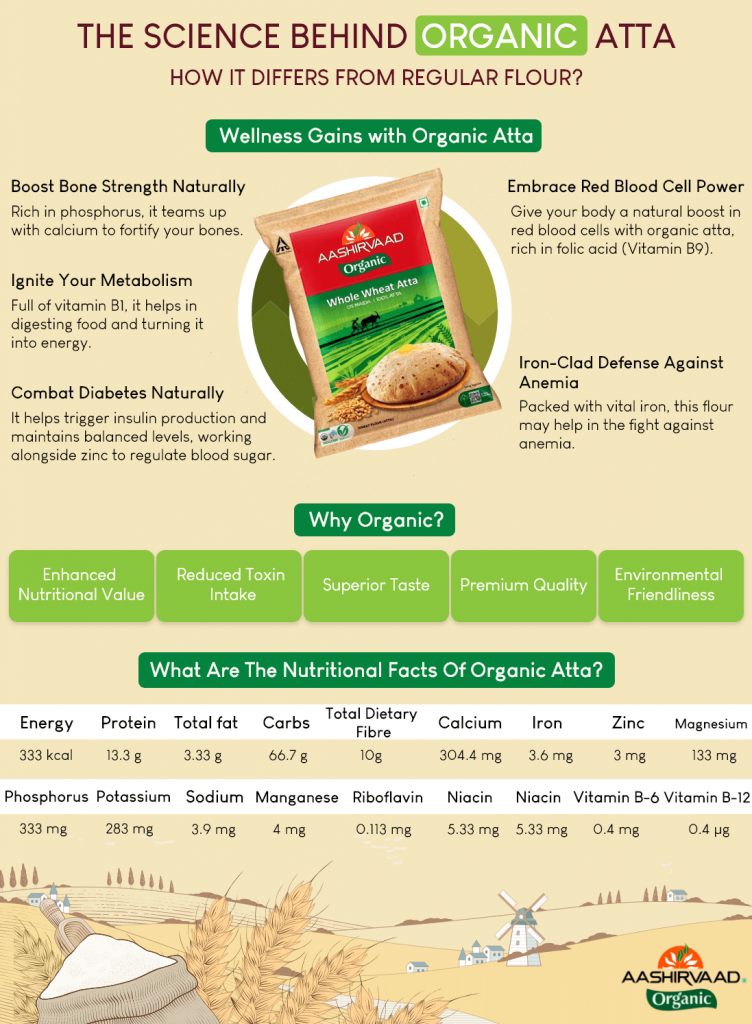
8. Frequently asked questions
a. How is organic atta processed differently, and what impact does it have on nutritional content?
Organic atta is typically processed using traditional methods like stone grinding, preserving the wheat’s nutritional content. This contrasts with regular flour, often processed in industrial mills, which may result in nutrient loss.
b. How does organic atta support bone health?
Organic atta is rich in phosphorus, which, when combined with calcium, contributes to stronger bones. Including organic atta in your diet can be a natural way to support bone health.
c. How does organic atta differ from regular flour?
Organic atta differs from regular flour as it retains the bran and germ content, ages naturally, and is free from artificial additives.
d. Can organic atta help in weight management?
Research suggests that regularly consuming organic atta may help in maintaining a balanced Body Mass Index (BMI), making it a potential friend in weight management.
e. Is organic atta suitable for individuals with diabetes?
Yes, organic atta can be a good choice for individuals with diabetes. It contains magnesium, which aids in insulin production and helps maintain balanced blood sugar levels.
f. Does organic atta have a distinct taste compared to non-organic varieties?
Yes, many people believe that organic atta has a richer and more robust flavour compared to non-organic varieties.
 12m read time
12m read time 